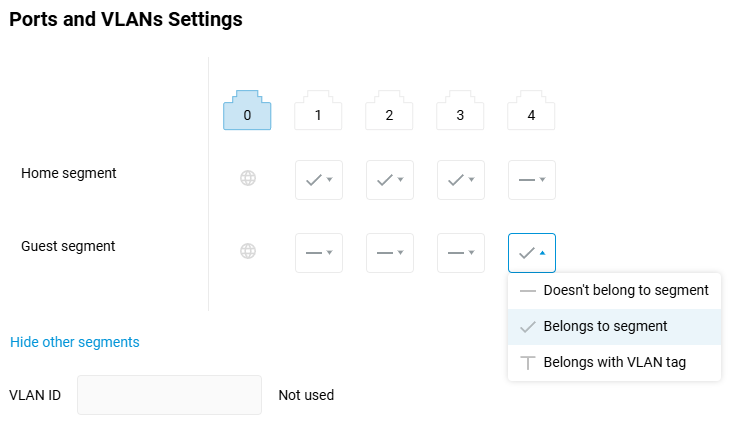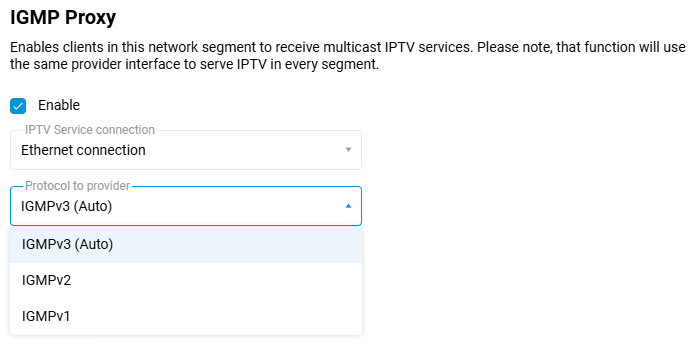Home network
Home and Guest network settings are shown on the My Networks and Wi-Fi page. By default Home network (Home segment) combines LAN ports of the built-in switch with the main Wi-Fi access point (hosts connected via wire and Wi-Fi). And for the Guest network (Guest segment), a separate Wi-Fi network is considered. This network is isolated from the home network. Segmenting the network allows it to improve its security and optimize the network's performance. A segment is a logical interface that can include one or more physical interfaces. Within a single segment, all interfaces are combined into a network bridge. The segment settings include the following parameters — network identifier (VLAN ID), IP parameters (IP address, subnet mask, DHCP server, IP address lease time), access profile for unregistered devices, IGMP Proxy And PPPoE transit connections (PPPoE Pass Through).
Using network segments, you can create an additional local network in the router. To add a new segment, press '+' while on the My Networks and Wi-Fi page and then configure the new segment (select network ports and specify other necessary parameters).

On the same page, you can configure the main Wi-Fi and guest Wi-Fi network. For additional info, please refer to the following articles:
To bind segments to LAN ports of the built-in switch, please use the Ports and VLANs Settings section. In our case
port 4is included in the Guest segment, and the remaining ports belong to the Home segment.If you use VLAN, you can specify VLAN ID and bind the required ports to the segment.

In the IP settings section, you can change the local IP address and DHCP settings. You can find additional information in the 'Changing IP and DHCP settings in the Home segment' article.
In the Internet Traffic Handling Rules section, you can choose a policy, which will be applied to all unregistered devices within the segment. For example, in the Home segment, set the policy No Internet access for all unregistered devices. In this case, only registered devices will have Internet access.

Important
Firewall rules take precedence over this setting.
In the IGMP Proxy section, you can enable the IGMP option (by default, it's disabled), allowing devices to receive IPTV. IGMP proxy relays IGMP protocol between interfaces. IGMP (Internet Group Management Protocol) is a network protocol designed to manage group data communication (multicast) in IP networks.
